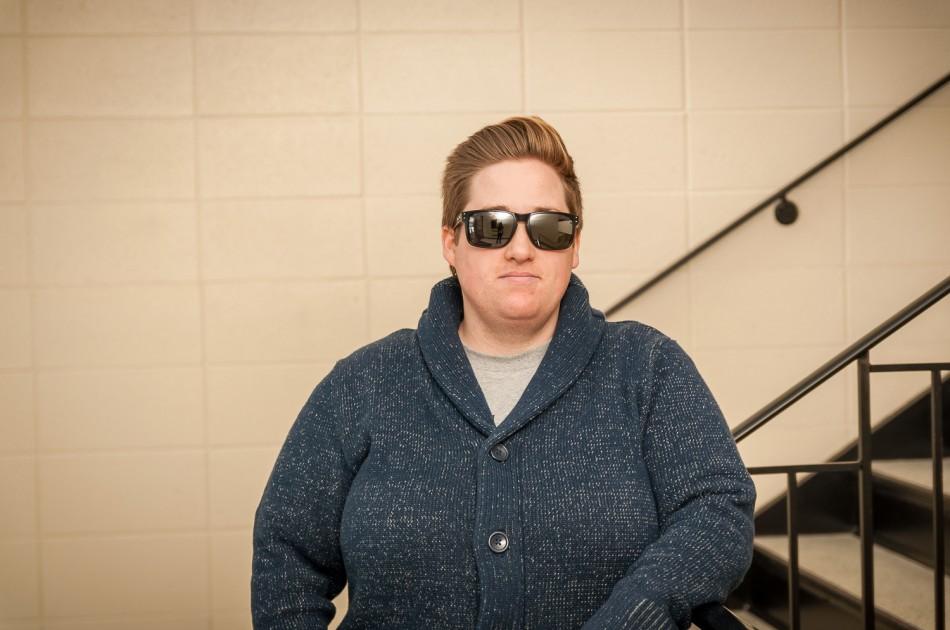Living with mental illness – a personal perspective
Karalee Manis shares her story during Mental Health Awareness Week.
January 29, 2015
I have struggled with mental illness for the majority of my life. My first diagnosis came at 13: depression. Over the years, my diagnoses have grown. The current, most accurate, state of my mental health is plagued by major depression, general/social anxiety and post-traumatic stress disorder.
I’ve tried countless medications, been hospitalized, have gone through different psychiatrists and therapists, all to the end of treating my illness. Most of the time, it didn’t work, or they didn’t work. It took me a really long time just to find a therapist that fit.
I had all these different people telling me “what” I was, but no one could really explain to me “why” I was. I didn’t know what was wrong, just that something was.
I wouldn’t go to school. I’d try everything I could not to go. My absences became so many it was a surprise when I did actually show up. But I couldn’t explain to the teachers or guidance counselors why. I didn’t understand enough or have the words to explain why I felt I couldn’t get out of bed, I was terrified to talk to people and being around so many felt like there was this weight crushing my chest. I felt like I was drowning and, for some reason, that I deserved it.
My illness would progress to panic attacks, self-injury, suicide attempts, severe isolation and social withdrawal. I spent a lot of time trying to hide from the world, not wanting to be a part of it and becoming a recluse. I’d drive around familiar routes, blasting music, trying to make myself feel better, while also mentally cataloguing every tree I passed and which ones would be best to crash into.
It wasn’t alarming to me. It felt logical; sometimes it still does. I’d think of the different ways in which I could make the end happen and deliberated on the most effective, because I wanted options.
Every day would be this constant effort to navigate my way through a maze that no one else could see. The depression was this weight that made everything slower and harder. The anxiety brought fear of the everyday. The PTSD messed with my head and produced reactions to things that didn’t make sense to me.
If I could sleep, that’s all I wanted to do. When I couldn’t, I’d spend hours trying to distract myself from the slow feel of insanity. I couldn’t think. I was easily distracted, and my memory was horrible. I know now these are results of my illness, but I didn’t years ago and that made everything that much harder.
I learned to suffer in silence. It is hard for people to understand things they cannot see and don’t comprehend. On the outside, I looked fine. But in my mind, everything was chaos and pain.
Often, it still continues to be. I cycle through different degrees of my depression, sinking lower at times. These are the days when I struggle to come up with a good enough reason as to why I should wake up, when my entire body hurts for no apparent reason, and I feel like everything is in slow motion, magnifying every thought, feeling and experience to a painful degree.
But I’m also better at recognizing my triggers and knowing how to soothe and mend myself. Admittedly, I don’t always make the right choices; I’ve been through self-medicating phases that have been more harmful than others. I know I have to take my medicine if I want to sleep at night, and I can better pinpoint what may make me more anxious or depressed. In some ways, I’ve become a master of identifying these obstacles and sometimes this awareness works for me.
However, I could step into a room, smell a particular scent, and then my day will be ruined as memories are triggered and I’ll feel I’m being swallowed whole into a depth from which there is no escape.
Thankfully, through lots of therapy and hard work, I’m living with this illness, not simply suffering because of it. I know it may never go away and I’ve accepted that. I may wear my sunglasses inside because they make me feel a little bit invisible. I may not speak to anyone all day because I can’t find the courage to. I still wear rubber bands on my wrists. But I’m coping, mostly in healthy ways, and I’m actually making an effort to live my life. And I know that is important.
Though I’m hesitant to admit it, I seem to be thriving in the face of my illness, and even if I still have trouble seeing where I may be in the near future, the important part is that I know there is a future to be had.


